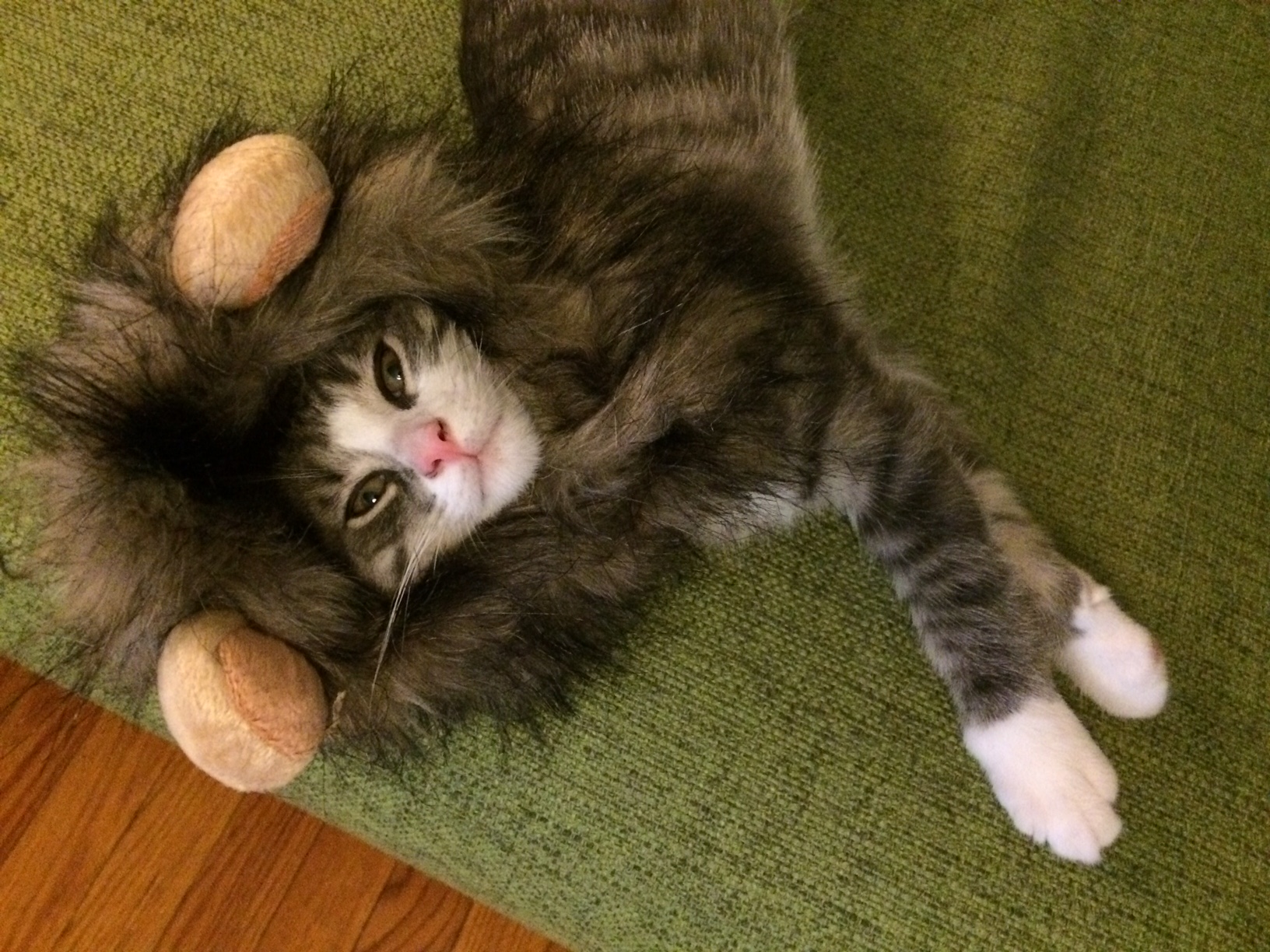I just got up from conversation with a couple of older black men, that I said “well I got to go back to work and start cracking the whip.” And it occurred to me then that it was probably a really insensitive stupid thing to say.
Sadly, it hadn’t occurred to me until it’s already said.

You do realize you’re asking for a racist-o-pedia, right?

Me and the boys going to work on the Big Book of Slurs

So, basically twitter…

Unfortunately there isn’t really a full list because that shit changes so often. Previously accepted phrases become slurs and yesterday’s slurs get reclaimed.

And it is locational. Something insensitive in the US might be insensitive here in Oz or over in Europe… Or might not.
That is how idiom works.

Yep. Can be things you wouldn’t even think about too. For example the word ‘spastic’ isn’t offensive in the US, but is deeply offensive in the UK, similar to the word ‘retard’

This is kind of tangential, but I don’t think I ever would have known that “poof” was an anti-gay slur in Britain if I hadn’t played Pokemon White. I wanted to.use that as a nickname and had to look up online why the game was preventing me.

Exactly.
The one I always tell about is a yank commedian who, on his first tour over here, lost everyone when he asked for his audience to bend over and pat each other on the fanny. In context, the joke would have made sense in America. Here in Oz, it was far more offensive than he thought it was, and the audience got upset with him, and you could see him realising he lost us. A whole lot of explaining needed doing, for both sides. Apparently he honestly thought he was talking about backsides. Poor sod. Thankfully bewildered American being lynched by pissed off audience wasn’t the main event that night…
Odd to think of a land where poof is not a slur. It is a slur here in Australia too.

Hey, this comment is really changephobic and contains a lot of anti-change-centric rhetoric. Please do better /s

Yesterday
Cursèd Saracens did spoil my day
Give us strength to crush those hordes, I pray
Oh, I believe in Huns to slay

Speaking of stupid and insensitive, I was in my 20s before someone explained to me that to reference “jewing someone down” on price was not a great thing to say. It seems absurd. I’d just never seen it in writing or thought about it–it was an idiom, that’s it. You want to get a better price, so you jew them down. I guess I thought it was a homonym, if anything, but I didn’t really think about it, at all. Big-time facepalm moment when it clicked for me. Likewise for, “I got gypped.”

My family always pronounced it “chewing them down,” so I was surprised to see it written the first time. I was probably in college.

I thought it was “chewing” too. It’s not a common religion here, and the two words are not homophones with our accent.

My grandfather, who passed away in the 90s, used to say “cotton pickers” for people that he meant as “jerks”. It took me until the 2010s that he was taking about black people. 🤦♂️

A lot of people post online that they love the phrase “cotton-headed ninny-muggins”.
But once you look at it thought this lens…boys I think this one’s not ok.

Isn’t that a line from “Elf”?

I remember in my 20s the phrase “indian giver” coming out of my mouth. I hadn’t used that phrase since I was a kid of 10 years old or so.
I immediately realized that I should never say that shit again. Adult me realized it is a horrible thing to say but as a kid I just thought it meant you gave and asked for it back. I had much more context as an adult.
Most of the time I think before I speak, but not always.

And Indian cuts. I realized it was racist when I heard the next generation calling them Chinese cuts.

Or Indian sunburns. Or sitting Indian style.

The two that really make me wince are “Indian giver” and the related “Indian summer” and of course calling hooch “firewater” isn’t great either.

I always thought “Indian summer” sounded very poetic, maybe related to the climate of the Indian subcontinent.
But it’s just garden variety American racism?
That’s so disappointing!Does anyone know more about the etymology?

Not so much an etymology, but how it was used in pop culture:
Our local paper used to publish a cartoon and poem every fall. The piece was called Injun Summer, and it was printed every October from 1907-1992.
It’s very much a relic of its era, which is to say “it was weird; really fucking weird.” The image is lovely. The text is an old man telling a young boy a totally made up story. It’s folksy, wistful and nostalgic. It talks about the past and how native spirits (literally ghosts) return to the land each fall. It’s also written in the vernacular of what an old man in 1907 might sound like.
Personally, I don’t think the complaints about racism were what caused them to stop printing it. I think it was the weirdness that just didn’t appeal to anyone under the age of 50 (in 1992!).
The fist link shows the image with text. The second shows how it would have looked in print.
http://www.sewwug.org/images/injun_summer_2.pdf
https://drloihjournal.blogspot.com/2017/10/the-history-of-john-t-mccutcheons-1907.html

Could you explain the firewater one?

It’s sort-of an antique trope whose main thrust is implying Native cultures are backward and unworldly because they don’t have distilleries (though, point in fact, some of them did ferment alcohol).

Firewater and other drinking stereotypes were about the myth of Native Americans all being raging alcoholics, which are as racist as saying black people are inherently violent or Jewish people inherently coveting money.
The alcohol abuse rates of Native Americans aligns with poverty issues, just like everyone else.

I honestly had no idea until now that firewater had anything to do with Native Americans. I just thought it was a term for alcohol, and don’t use it myself anyway.

Never heard it that way. It is a calque of a Native American name from the northern plains. I always thought a white person using it was offensive due to negative stereotypes about native Americans and drinking (and also mocking somewhat, like walking about saying “how” or speaking pidgin).

Indian* here, and I don’t know anyone offended by Indian summer.
*It says Indian on my ID.

Oof. At work we currently have a project for words deemed insensitive. For the most part I think it’s worthy, but some things are overboard. The project group cast a very wide net, ignoring context and etymology. My biggest disagreement is over “black” and “white”.
Take “black box” and “white box” for types of testing. These are based merely on the properties of light. I have serious doubts about anyone ever having felt excluded by their use. And yet, we’re wasting time coming up with non-standard nomenclature to satisfy this supposed slight. There’s a whole laundry list of words like this.

I’m still mad about git master
Master as in “the master copy”
And they went and broke a bunch of tools and workflows to change it

Yeah, master has a few uses like this. Master bedrooms came about in the 20th century and had nothing to do with slavery. Then there is master in a pupil setting, though that is fairly uncommon in the US anyway. It’s more of a European/UK thing I think.
Again, I have nothing against changing things that are genuinely problematic. I just have a problem with busy work that is being demanded for items that aren’t actually offensive.

Odds are that such a list won’t ever exist. Insensitivity and bias depend on meaning, and meaning depends on context. As such, we [people in general] need to pay attention to what we’re saying, and to whom, in to avoid both things. No easy way.

It’s not quite what you’re looking for, but there’s this list: https://en.wikipedia.org/wiki/List_of_ethnic_slurs

To add to this:
List of lists of pejorative terms for people
It includes lists for men, women, lgbt+, disability, age, ethnicity, religion, location. The severity of the terms is varying and arguably location-dependent.
For example, while I (probably) wouldn’t use the word “wanker” in a formal professional large meeting in my current workplace without it being somehow contextual, almost no Australian or New Zealander in that company would blink an eye if I said it casually at lunch. But when I worked in the education sector I used the personal rule “if I don’t want it written on my gravestone, I shouldn’t say it”, because teachers have subsonic and lightning-fast swearing detection reflexes, even when they’re not at school.

This is a misled approach. Rather than trying to list out the myriad phrases in our language based on historical prejudice, it’s better to just understand that prejudice yourself so you can determine what you want to perpetuate and what you don’t. That being said this won’t prevent something like this from ever happening again, and sometimes things you would never guess are rooted in white supremacy or other ism. No one knows the full extent of it themselves and no one is expected to know everything. If it happens on occasion and you realize it like this and avoid it in the future it’s fine for most people. If you keep saying something you don’t realize is messed up and stop when you learn it’s messed up, that’s also fine. It’s only when it’s obvious that you know it’s wrong but you insist on doing it or get defensive about how it shouldn’t be a big deal when it becomes a real issue.

100%. We’re all human and so many phrases are just in the vernacular.
I grew up hearing the word “gypped”. I didn’t know that’s how it was spelled (thought it was jipped.) It wasn’t until I was in college that I realized gypped -> Gypsy and extremely offensive. I’m still embarrassed that it took me that long to figure out.

I tried to look but the most official one (from University of Washington) is kind of ridiculous. Following for better ideas.

Cunt

I actually looked into this two days ago. I came across a PDF that was maybe six years old but already outdated. It’s a problem when it’s this difficult to keep up. I know it’s a problem to not try to keep up too though. The human condition sucks.

where does everyone stand on cretin? IMHO it’s medical use is obsolete afaik, so really it’s just an insult right?
I think it might have originated in the Bible. Paul says in Titus 1:12-13 NIV
"One of Crete’s own prophets has said it: ‘Cretans are always liars, evil brutes, lazy gluttons.’ This saying is true. Therefore rebuke them sharply, so that they will be sound in the faith.
I always found it comical that Paul, the great apostle, endorsed this stereotype of the people of Crete.

I think it’s medical and insulting use are obsolete lmao

I dunno man, cretin perfectly describes Trump…

Unfortunately, this keeps changing. Old slurs get recycled or forgotten, and new words become offensive. Corporate guidelines are often hugely overbroad to avoid offending anyone. The best way to avoid things like what just happened, by checking slang in a dictionary before using it.
